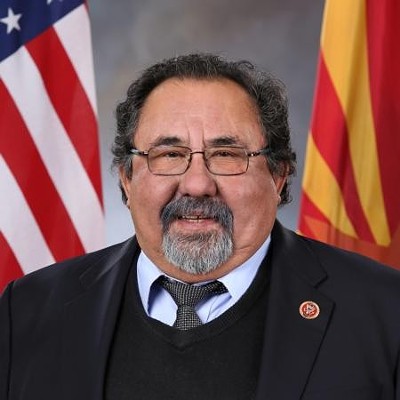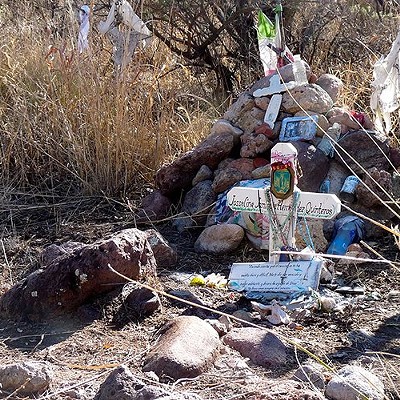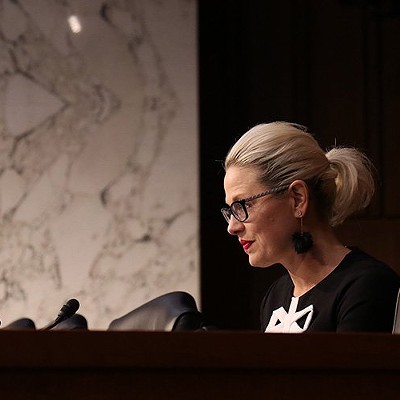Immigration Overhaul
President Barack Obama takes unilateral action on immigration reform
President Barack Obama announced last week that he would concentrate immigration-enforcement efforts on dangerous criminals and suspected terrorists rather than undocumented immigrants who are otherwise law-abiding people.
"I continue to believe that the best way to solve this problem is by working together to pass that kind of common sense law," Obama said. "But until that happens, there are actions I have the legal authority to take as President—the same kinds of actions taken by Democratic and Republican presidents before me—that will help make our immigration system more fair and more just."
The new proposal includes increased border enforcement, a streamlined plan for legal immigration and a crackdown on employers that hiring undocumented workers, but the most controversial part of the plan includes a plan to shield some undocumented people now in the United States as long as they register with the government and pass background checks.
Republicans were generally critical of Obama's action. Arizona Sen. John McCain said it "not only lacks legal justification, but will set back important bipartisan efforts to reform our broken immigration system and secure our nation's borders, while Sen. Jeff Flake said he was "very disappointed with the action the president is taking. It certainly doesn't seem like the right way to work with a new Congress."
But Obama said he took action only after coming to the conclusion that the House of Representatives wasn't likely to act on a bipartisan immigration plan sponsored by Flake and McCain.
"Had the House of Representatives allowed that kind of bill a simple yes-or-no vote, it would have passed with support from both parties, and today it would be the law," Obama said. "But for a year and a half now, Republican leaders in the House have refused to allow that simple vote."
Congressman Raul Grijalva praised Obama, saying the president "acted within the confines of the law, knowing that overreaching would bring legal challenges that could undo the entire effort. The result is historically significant and politically brave action that moves our country forward. I am confident that, in implementing these actions, the administration will do what is right and just to ensure our border communities do not unnecessarily suffer under the facade of security."
Historic Struggle
Preservationists, affordable housing advocates debate future of shuttered Downtown Motor Hotel
Passions flared at another meeting to address public comment regarding the demolition of the Downtown Motor Hotel on South Stone Avenue last Thursday, Nov. 20.
Tucson-based Compass Affordable Housing bought the historic hotel in May with plans to build 48 units of affordable housing for veterans and low-income families. Neighbors in the area have expressed concerns about the lack of public outreach on the part of the developers and the State Historic Preservation Office.
The meeting on Thursday saw much of the audience divided into two halves of the room, with pro-preservation activists on one side and pro-affordable housing on the other. Ensuing disputes addressed the number of parking spaces, which preservationists argued, at 29 spaces, was too few compared to the allotted number of housing units.
Others expressed concern about the Section 106 process, which developers receiving federal funds are required to file with the Advisory Council of Historic Places in an effort to mitigate adverse effect on the property. Though the Downtown Motor Hotel itself is not registered within the National Register of Historic Places, the building contributes to the National Historic District of the Armory Park Neighborhood.
Typically filed at the start of a project, the section 106 for the hotel was only recently filed. Compass CEO Maryann Beerling told the audience the reason for the delay was because the developer didn't know from the beginning that they would use federal funding.
Rep. Demion Clinco for the state's House of Representatives District 2 said the earlier the section 106 process starts, the sooner the opportunity arises for public comment.
"It's supposed to start at the beginning of the process," Clinco said about the section 106. "What's unfortunate with this is that here we are almost a year into their process — they've had engineering reports and studies done — and we're just starting this, which creates a tremendous amount of tension in the community."
The tension was evident on Thursday as some members of the community questioned how viable the units would be for potential tenants. Beerling addressed the concerns head-on.
"We will not be a slum lord," she said. "That's not my style."
The Weekly had previously reported on nearby residents' concerns that the State Historic Preservation Office had been working closely with a consultant for the developer to overcome neighborhood opposition and uncovered emails that showed that the consultant didn't know who famed architect Josiah Joesler was. (See "The Big Checkout," Nov. 3.)
Beerling declined to talk about the project with the Weekly, saying that the paper's earlier story on the dispute between nearby residents and the State Historic Preservation Office was "crap." Beerling did not attend the meeting that the Weekly's story was based on.
Heart Trouble
An autopsy shows that author Charles Bowden died of natural causes
As readers of this publication know, famed author Charles Bowden died in his sleep in Las Cruces, N.M., on Aug. 30 of this year. Conspiracy theories swirled in some circles. He had written uncompromising journalism about the failed drug war in Mexico and had earned the wrath of some powerful figures. His co-written book El Sicario: Autobiography of a Mexican Assassin, revealed details of how a contract killer dispatches his victims. Agents from the U.S. Drug Enforcement Administration told Bowden that at least two cartels had expressed a desire to kill him over a period of 10 years because of his reporting.
We can now report the cause and manner of his death. Bowden, 69, died of cardiovascular disease aggravated by narrowing of the arteries, according to Mary Martha Miles, his literary executor and partner of 13 years who spoke with the New Mexico medical examiner who conducted the autopsy. No signs of foul play were present. His lungs showed signs of heavy smoking and his liver was slightly enlarged, but according to the report Miles received, it appears to have been heart failure during an afternoon nap that claimed the life of the Southwestern literary icon.
Tom Zoellner and Kyle Mittan contributed to this column.
"Zona Politics with Jim Nintzel," airs every Sunday at 9:30 a.m. on KGUN-9. This week's guests include Tucson Hispanic Chamber of Commerce President and CEO Lea Marquez Peterson and Pima County Democratic Party Chairman Don Jorgensen.















